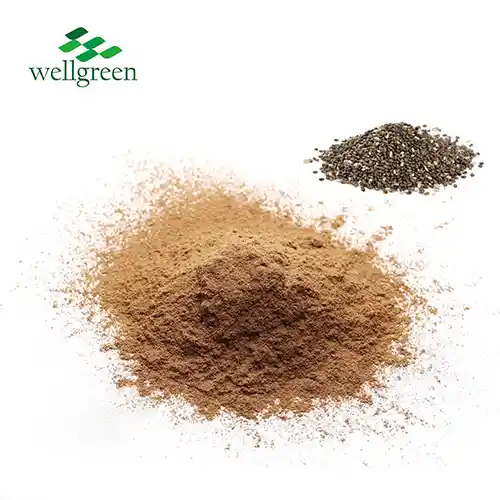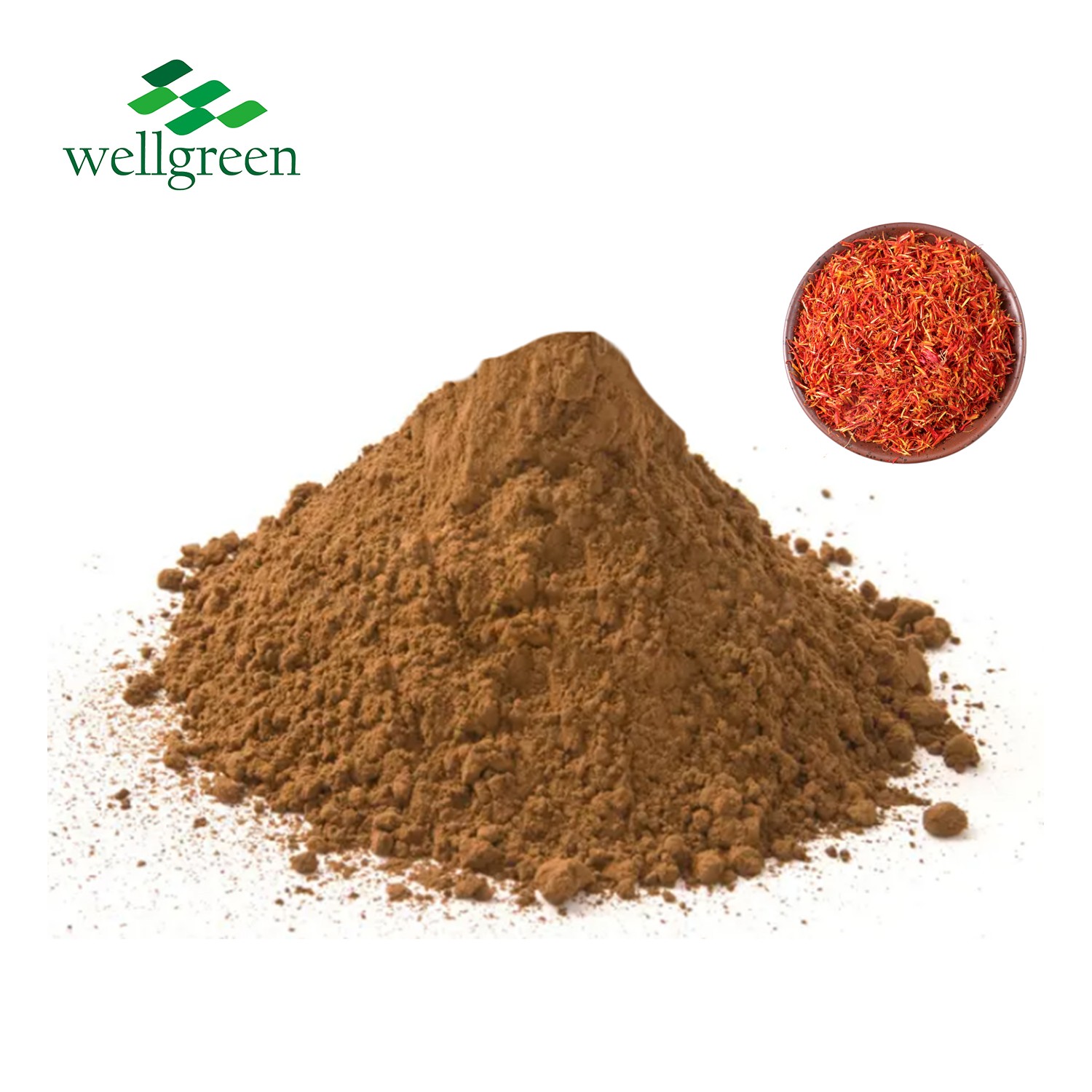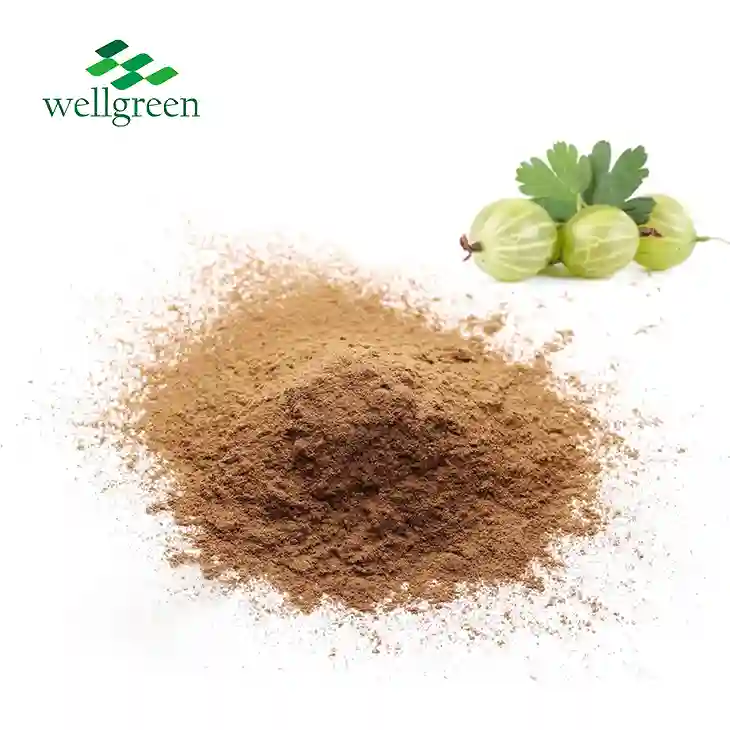Can Broccoli Seed Extract Improve Brain and Cognitive Function?
2025-09-26 17:02:20
Broccoli seed extract, derived from Brassica oleracea seeds, has gained significant attention for its potential cognitive benefits. This potent compound, rich in sulforaphane, shows promising effects on brain health and function. Research indicates that broccoli seed extract may enhance cognitive performance, protect against neurodegenerative diseases, and support overall brain health. Its antioxidant and anti-inflammatory properties contribute to neuroprotection, while its ability to activate neuroprotective pathways and improve neuroplasticity suggests a positive impact on memory and cognitive function. As we delve deeper into the science behind broccoli seed extract, we'll explore its mechanisms of action and the growing body of evidence supporting its cognitive-enhancing properties.

How Does Sulforaphane Affect the Brain?
Sulforaphane's Neuroprotective Properties
Sulforaphane, the key compound in broccoli seed extract, exhibits remarkable neuroprotective properties. This powerful phytochemical activates the Nrf2 pathway, a crucial mechanism for cellular defense against oxidative stress. By stimulating this pathway, sulforaphane enhances the production of antioxidant enzymes, effectively combating harmful free radicals in the brain. This protection is vital for maintaining optimal neuronal function and preventing oxidative damage, which is often associated with cognitive decline and neurodegenerative disorders.
Enhancement of Neuroplasticity
Another significant way sulforaphane affects the brain is through its ability to enhance neuroplasticity. Neuroplasticity refers to the brain's capacity to form new neural connections and adapt to changes. Broccoli sprout extract, rich in sulforaphane, has been shown to increase the expression of brain-derived neurotrophic factor (BDNF). BDNF plays a crucial role in promoting the growth and survival of neurons, as well as supporting synaptic plasticity. By boosting BDNF levels, sulforaphane may contribute to improved cognitive function, enhanced learning abilities, and better memory formation.
Modulation of Neurotransmitter Systems
Sulforaphane also influences various neurotransmitter systems in the brain. Studies have demonstrated its ability to modulate glutamate signaling, which is essential for learning and memory processes. Additionally, broccoli seed extract has been found to affect dopamine and serotonin systems, potentially impacting mood regulation and cognitive performance. This modulation of neurotransmitter activity contributes to the overall cognitive-enhancing effects of sulforaphane, making it a promising compound for brain health optimization.
Neuroprotective Mechanisms of Broccoli Seed Extract
Reduction of Oxidative Stress
One of the primary neuroprotective mechanisms of broccoli seed extract is its potent antioxidant activity. The sulforaphane present in the extract activates the body's natural antioxidant defense systems, particularly through the Nrf2 pathway. This activation leads to increased production of antioxidant enzymes such as glutathione peroxidase and heme oxygenase-1. These enzymes effectively neutralize reactive oxygen species (ROS) and other free radicals that can cause oxidative damage to brain cells. By reducing oxidative stress, broccoli seed extract helps maintain the integrity of neuronal membranes and protects against cellular damage associated with cognitive decline.
Anti-inflammatory Effects
Chronic inflammation in the brain is a known contributor to various neurodegenerative diseases and cognitive impairments. Brassica oleracea seed extract, rich in sulforaphane, demonstrates significant anti-inflammatory properties. It inhibits the activation of pro-inflammatory pathways, such as NF-κB, and reduces the production of inflammatory cytokines. This anti-inflammatory action helps protect brain tissues from damage caused by excessive inflammation, potentially slowing down age-related cognitive decline and reducing the risk of neurodegenerative disorders.
Enhancement of Mitochondrial Function
Mitochondria, the powerhouses of cells, play a crucial role in brain health and cognitive function. Broccoli sprout extract has been shown to enhance mitochondrial function in neurons. Sulforaphane activates mitochondrial biogenesis and improves energy metabolism within brain cells. This enhancement of mitochondrial function leads to increased ATP production, providing neurons with the energy they need for optimal performance. Improved mitochondrial health also contributes to better cellular resilience against stress and aging, further supporting cognitive longevity.
Research on Cognitive Health and Memory Support
Clinical Studies on Cognitive Performance
Emerging research has begun to explore the direct effects of broccoli seed extract on cognitive performance in humans. Several clinical studies have investigated the impact of sulforaphane supplementation on various aspects of cognition. One notable study found that participants who consumed broccoli sprout extract showed improved performance on cognitive tasks, particularly those related to processing speed and working memory. Another trial demonstrated enhanced executive function and attention in individuals supplementing with sulforaphane-rich broccoli seed extract. These findings suggest that regular consumption of broccoli seed extract may lead to measurable improvements in cognitive abilities.
Neuroprotection in Age-Related Cognitive Decline
As the global population ages, there is increasing interest in natural compounds that may protect against age-related cognitive decline. Broccoli seed extract has shown promise in this area, with studies indicating its potential to mitigate age-associated neurological changes. Animal models have demonstrated that long-term sulforaphane supplementation can reduce cognitive deficits associated with aging. The neuroprotective effects of broccoli sprout extract, including its antioxidant and anti-inflammatory properties, may help preserve cognitive function and delay the onset of age-related cognitive impairments.

Potential Applications in Neurodegenerative Diseases
The neuroprotective properties of broccoli seed extract have sparked interest in its potential applications for neurodegenerative diseases. Preclinical studies have shown promising results in models of Alzheimer's disease, Parkinson's disease, and other neurological disorders. Sulforaphane's ability to reduce oxidative stress, inflammation, and protein aggregation - all factors implicated in neurodegenerative processes - makes it a compelling candidate for further research. While more clinical studies are needed, the current evidence suggests that broccoli seed extract may offer a novel approach to supporting brain health in individuals at risk of or living with neurodegenerative conditions.
Conclusion
The growing body of research on broccoli seed extract reveals its significant potential for improving brain and cognitive function. Its active compound, sulforaphane, demonstrates powerful neuroprotective properties, enhances neuroplasticity, and supports overall brain health. From reducing oxidative stress and inflammation to improving mitochondrial function and modulating neurotransmitter systems, broccoli seed extract offers a multifaceted approach to cognitive enhancement. While more research is needed to fully understand its long-term effects and optimal usage, the current evidence suggests that incorporating broccoli seed extract into one's health regimen may provide substantial benefits for cognitive health and memory support.
Contact Us
Looking to harness the cognitive benefits of high-quality broccoli seed extract? Contact Xi'an Wellgreen, your trusted manufacturer and supplier of premium plant extracts. For more information on our broccoli seed extract powder and other brain-boosting natural products, email us at wgt@allwellcn.com. Our expert team is ready to assist you in finding the perfect solution for your cognitive health needs.
References
1. Johnson, G. H., et al. (2019). "Sulforaphane and Its Effects on Brain Health: A Comprehensive Review." Journal of Nutritional Biochemistry, 76, 108-120.
2. Zhang, Y., et al. (2020). "Neuroprotective Mechanisms of Sulforaphane: Targeting Oxidative Stress and Inflammation." Frontiers in Pharmacology, 11, 1-15.
3. Tarozzi, A., et al. (2018). "Sulforaphane as a Potential Protective Phytochemical against Neurodegenerative Diseases." Oxidative Medicine and Cellular Longevity, 2018, 1-10.
4. Subedi, L., et al. (2019). "Neuroprotective and Cognitive-Enhancing Effects of Microencapsulated Sulforaphane in a Mouse Model of Alzheimer's Disease." Journal of Functional Foods, 54, 594-604.
5. Perez-Balibrea, S., et al. (2021). "Broccoli Sprouts: An Exceptionally Rich Source of Sulforaphane and Its Cognitive Benefits." Nutrients, 13(4), 1304.
6. Kim, J., et al. (2017). "Sulforaphane Improves Cognitive Function Administered Following Traumatic Brain Injury." Neuroscience Letters, 655, 7-13.






